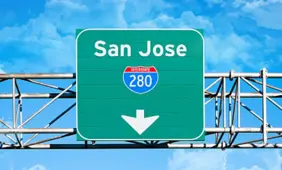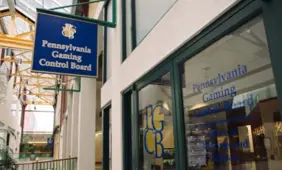GambleAware Releases Resources to Support Neurodivergent Gamblers
GambleAware has published new resources aimed at improving support for neurodivergent people harmed by gambling.

In a report published this week, GambleAware – the UK’s leading problem gambling charity – said people with conditions such as ADHD and autism can be particularly vulnerable to gambling-related harm. The charity pointed to factors including impulsivity, hyperfocus, social isolation and a heightened need for stimulation as drivers that can increase the likelihood of addictive behaviour among neurodivergent groups.
GambleAware highlighted testimony from people with lived experience to illustrate how these dynamics play out. Paul Nash, who has spoken publicly about his own recovery, described how routine and personal interests can entwine with betting: "For autistic people, routines can become all-consuming; gambling slipped into my daily life because it tied to my love of sport and the prospect of making money". He added that, while he was able to access treatment and build a new purpose, many others face longer and more complicated paths to help.
The charity also noted practical barriers that prevent neurodivergent people from getting support. Many are unaware that specialist help exists; others avoid services because they fear judgement or stigma. Those access issues, GambleAware said, leave a sizable evidence gap in how services should be adapted to be genuinely inclusive.
Related: GambleAware Urges Stronger Online Gambling Rules to Protect Children
Practical Tools and Six Principles for Practitioners
To address that gap, GambleAware has made available a package of resources for therapists and frontline practitioners. Developed with IFF Research and Ara Recovery for All and drawing on GambleAware-funded research alongside experts at the University of Bristol, the materials include training modules, toolkits, case studies and self-help tools designed for use in clinical and community settings.
Anna Hargrave, chief executive of GambleAware, framed the initiative as a targeted attempt to close an evidence and practice divide.
br>"The resources we have produced are designed to support therapists and practitioners working with clients who experience both gambling harms and neurodivergence. They address a critical evidence gap in understanding how gambling harms affect neurodivergent people and how treatment can be tailored most effectively to ensure it is as effective as possible."
Alongside the learning materials, GambleAware sets out six core principles intended to guide practice. These cover recognising diverse communication needs and simplifying language; promoting client autonomy and self-directed approaches such as guided self-help and peer networks; creating sensory-aware environments to reduce overstimulation; ensuring staff receive neurodiversity training; and adapting assessment and treatment plans to reflect differences in attention, routine-driven behaviour and impulse control.
The charity emphasised that these recommendations are not prescriptive clinical protocols but practical design principles that services can adopt and adapt. The materials are intended for a wide audience, from specialist gambling treatment teams and mental health clinicians to generalist counsellors and peer-support organisations.
GambleAware’s publication follows other recent activity from the charity examining the adequacy of Britain’s online gambling rules and how policy and treatment must evolve to protect vulnerable groups in an increasingly digital market. Regulators, including the UK Gambling Commission, and health bodies, such as the NHS, have previously acknowledged the complexity of addressing co-occurring conditions like neurodivergence and problem gambling.
Experts and treatment providers said the new resources are a welcome step, but cautioned that embedding change will require sustained investment in training, cross-sector referral pathways and routine collection of data on neurodivergence in gambling services.
More Responsible Gambling
 Responsible Gambling
Responsible Gambling
Finland Publishes 2-4-2 Gambling Harm Framework Before 2027 Market Opening
Feb 18, 2026 Responsible Gambling
Responsible Gambling
FanDuel to End Credit Card Funding on March 2 as Part of Safer-Play Push
Feb 12, 2026Practical Guidance for Therapists
Practitioners accessing the toolkit can expect: accessible case studies illustrating common presentation patterns; communication aids and simplified assessment templates; sensory checklists to adapt clinical environments; options for low-intensity interventions and digital self-help; and guidance on involving family or peer supporters where appropriate. GambleAware says the aim is to make services easier to navigate and more likely to engage neurodivergent clients over the long term.
RELATED TOPICS: Responsible Gambling
Most Read
Must Read
 Interviews
Interviews
Exclusive Interview: Levon Nikoghosyan Shares AffPapa Winning Formula for Successful iGaming Events
Dec 03, 2025 Interviews
Interviews







Review this New Post
Leave a Comment
User Comments
Comments for GambleAware Releases Resources to Support Neurodivergent Gamblers